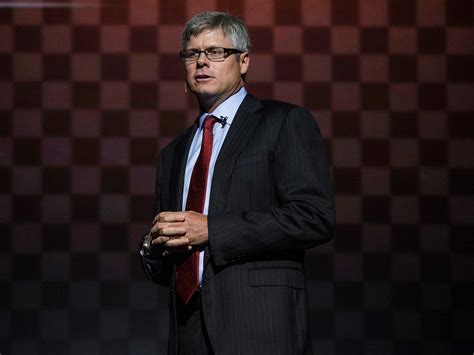A Quote by Hillary Clinton
We need to have strong growth, fair growth, sustained growth.
Related Quotes
Growth works. What we're doing in the administration to spur growth in terms of regulatory form work. And what we're working is to make sure that those tax cuts add to that. We do believe that sustained 3 percent economic growth is possible and that that is the way you can balance the budget long-term.
Economic growth must be the central issue because it is only through growth that the devastating threat of national bankruptcy can be averted. Furthermore, it is only by reviving American economic growth that the West's global predominance can be sustained, and peace and freedom kept secure around the world.
Capitalism with near-full employment was an impressive spectacle. But a growth in wealth is not at all the same thing as reducing poverty. A universal paean was raised in praise of growth. Growth was going to solve all problems. No need to bother about poverty. Growth will lift up the bottom and poverty will disappear without any need to pay attention to it. The economists, who should have known better, fell in with the same cry.
Growth, growth, growth -- that's all we've known . . . World automobile production is doubling every 10 years; human population growth is like nothing that has happened in all of geologic history. The world will only tolerate so many doublings of anything -- whether it's power plants or grasshoppers.
Our principal constraints are cultural. During the last two centuries we have known nothing but exponential growth and in parallel we have evolved what amounts to an exponential-growth culture, a culture so heavily dependent upon the continuance of exponential growth for its stability that it is incapable of reckoning with problems of non-growth.

































